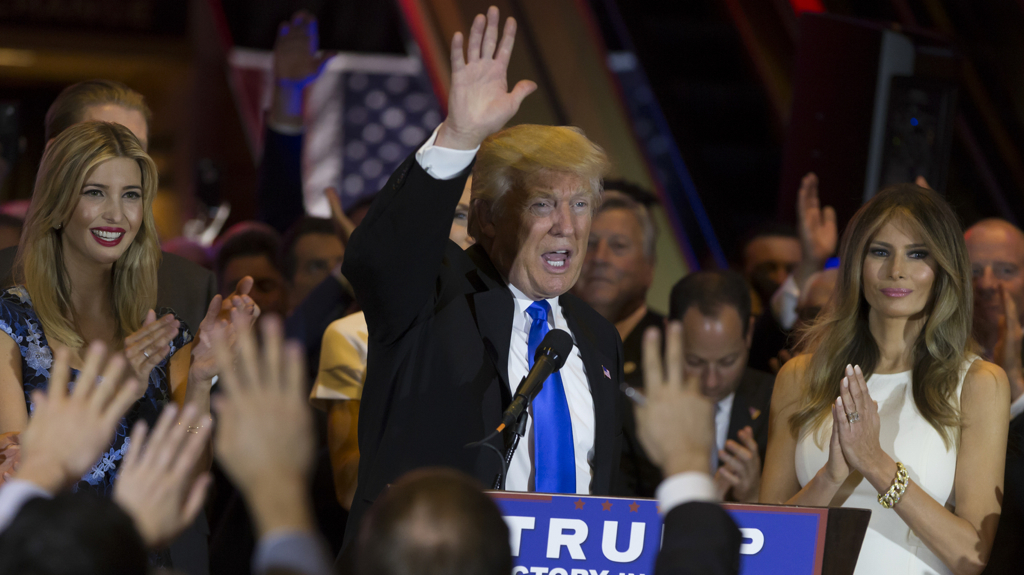 “If the election is rigged, I would not be surprised,” Donald Trump told the Washington Post in August. Bernie Sanders applied the same word to the economy, banks, and superdelegate rules. His rival agreed: “Yes, the economy is rigged in favor of those at the top,” Hillary Clinton told a debate audience in February. There’s so much rigging in this election, it’s starting to resemble a schooner.
“If the election is rigged, I would not be surprised,” Donald Trump told the Washington Post in August. Bernie Sanders applied the same word to the economy, banks, and superdelegate rules. His rival agreed: “Yes, the economy is rigged in favor of those at the top,” Hillary Clinton told a debate audience in February. There’s so much rigging in this election, it’s starting to resemble a schooner.
“Rigged” derives from a 17th-century noun, rig, meaning trick or trap, and is connected to a nautical term meaning to prepare (think “rig up the sails”). The term is so effective largely because it’s generally used as a passive verb (“the system is rigged”) or an adjective (“rigged system”), with the person doing the rigging only implied—making it an easy term to use without pointing a finger in any one direction. “To say ‘rigged’ implies . . . that the outcomes or features you don’t like are purposeful and done likely in secret,” says Joseph Uscinski, a University of Miami professor and coauthor of American Conspiracy Theories.
This political season certainly isn’t the first to feature the term. As writer Emily Bazelon pointed out in the New York Times this year, it has long had resonance for African-Americans, who have felt literally swindled by the system. In 1962, future congressman John Lewis described blacks in Selma finding a “system rigged against them.” At the time, only 2 percent were registered to vote. By 1972, a former Vice President was using the word: The US tax system, Hubert Humphrey said, “is rigged against . . . the poor. And it is rigged in favor of unearned income.”
What’s new is that the charge is being applied to the electoral system, not just the political one—and everyone’s doing it. When pro-segregation Democrat George Wallace said in ’68, “That’s right, in my opinion, [the polls] are rigged,” and blamed “the Eastern crowd with Eastern money,” he was on the fringes. This year, cries of “rigged!” have come from all sides, with Trump’s conspiracy theories followed by reports that Russian hackers interfered in state electoral databases and Democratic allegations that Trump advisers were colluding with Russia to shift the election. Either we’re getting more paranoid about “rigging” or our paranoid fantasies are finally coming true.
This article appears in our October 2016 issue of Washingtonian.



















